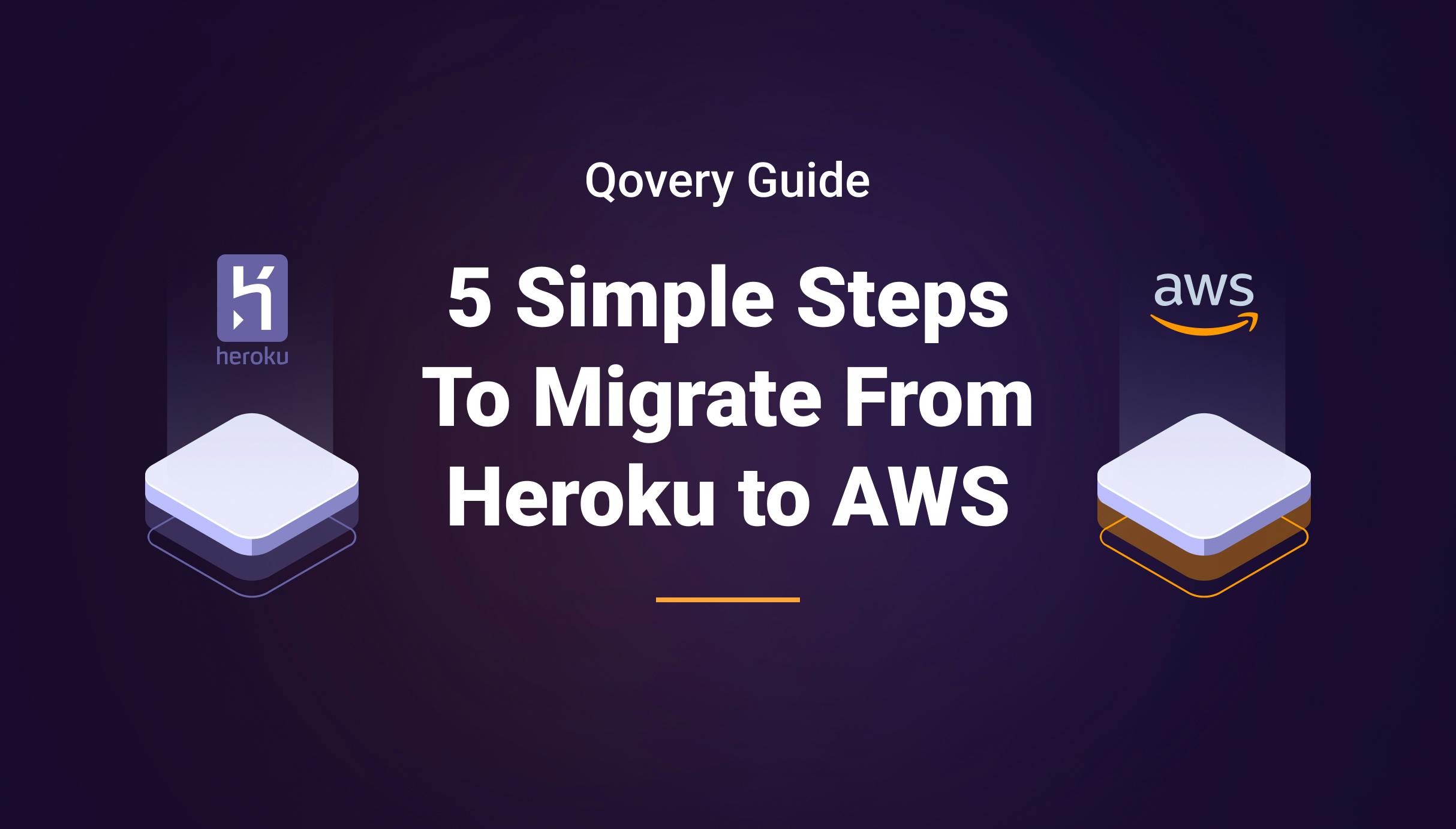Top 10 Alternatives of Heroku in 2024
A while ago, Heroku made the surprising decision to discontinue its free tier, leaving many developers searching for alternatives. This decision followed Salesforce's acquisition of Heroku, with the platform refocusing its energies towards serving "mission-critical" businesses. But every cloud has a silver lining. The evolving landscape of cloud platforms has created numerous alternatives that are on par with or even surpass what Heroku offers, both in terms of features and pricing. This article dives deep into the top ten of these contenders, shedding light on what each brings to the table. We will discuss the strengths and weaknesses of each alternate, along with the pricing model. Let’s start with the first one, Qovery.

Romaric Philogène
August 25, 2022 · 12 min read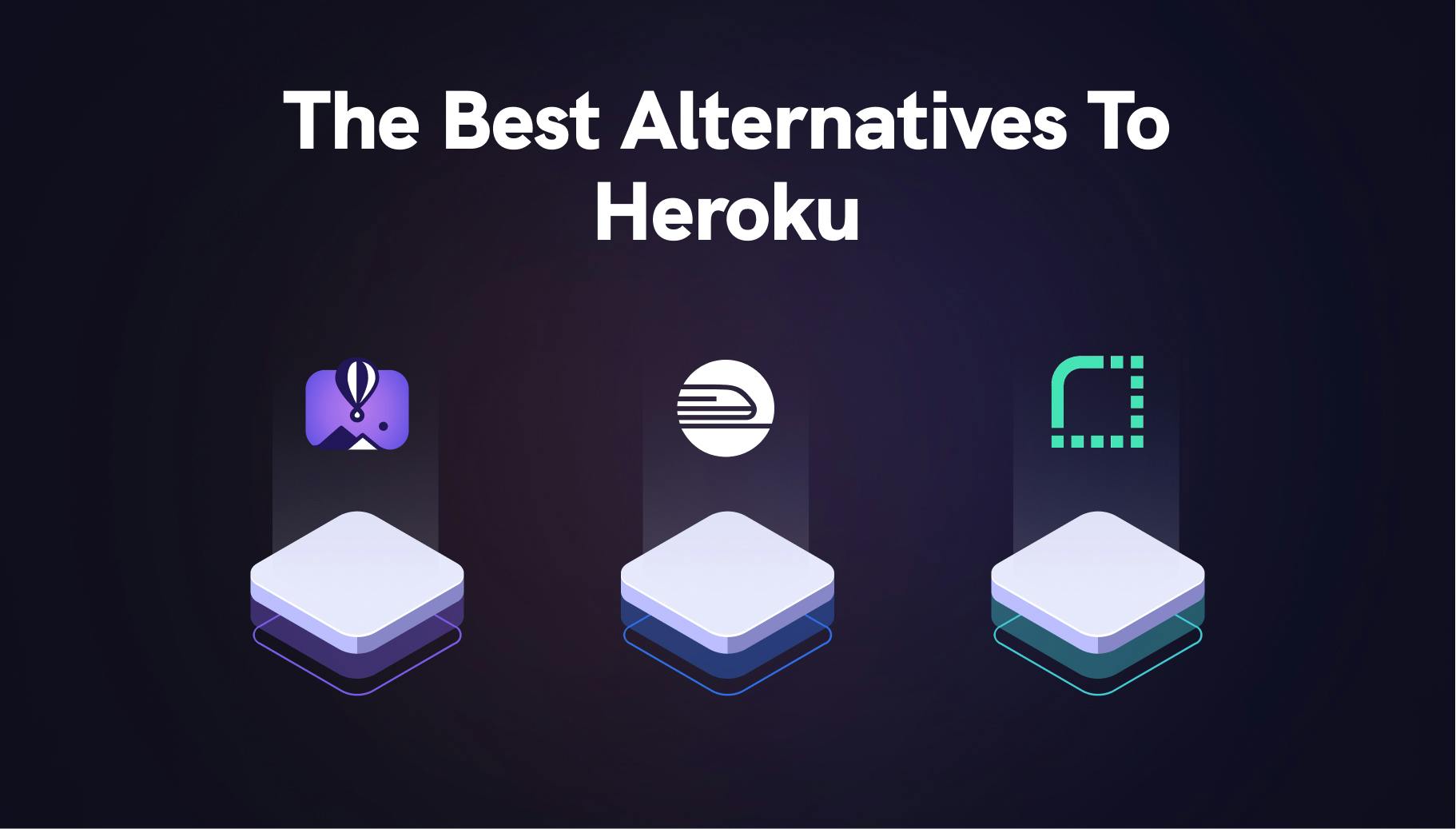
#1. Qovery
Qovery is a cloud platform that streamlines the deployment, management, and scaling of applications primarily on AWS infrastructure. It encompasses a range of features, including:
- Deployment on Cloud: Qovery allows developers to deploy their applications on their own cloud accounts.
- Infrastructure: Both Qovery and Heroku utilize AWS, but Qovery provides direct access to AWS resources and is built on top of Kubernetes, allowing more flexibility in managing the infrastructure.
- Various Environments: It supports up to 5 environments in the free tier and up to 50 in the paid tier, allowing for better organization and management of projects.
- Databases: Supports a variety of databases like PostgreSQL, MySQL, MongoDB, and Redis.
- Custom Domains: Provides support for custom domains along with TLS/SSL for secure connections.
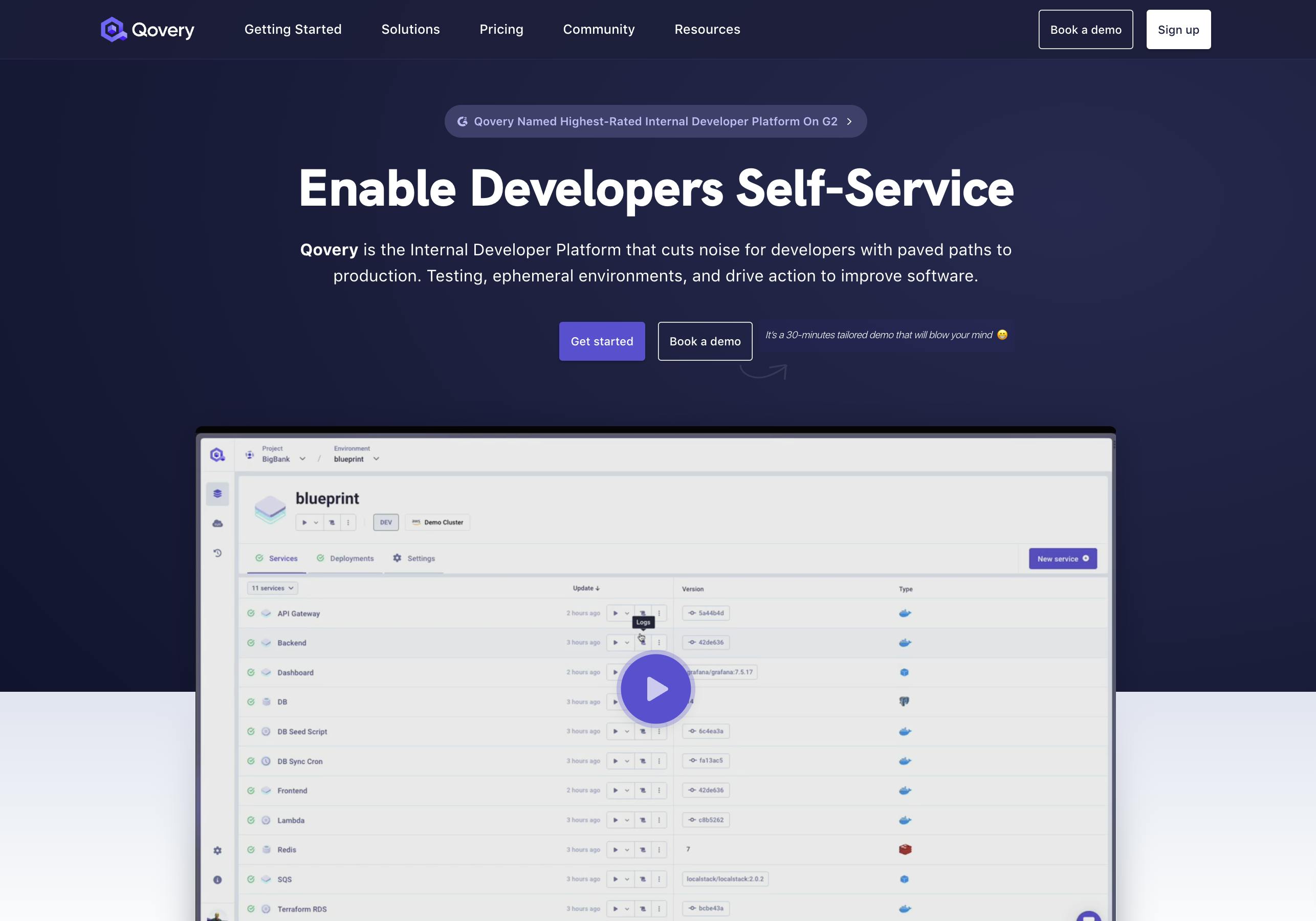
#How is it different than Heroku?
- Cost: Qovery provides a free tier and has a transparent pay-as-you-go pricing model, which might be more cost-effective, especially for developers who are just starting out or working on smaller projects.
- Deployment Options: Offers a wider range of cloud service providers, including AWS, Google Cloud Platform, and Scaleway, unlike Heroku, which primarily utilizes AWS.
#Pricing
Qovery offers a free tier for up to 10 developers with limitations on deployments and environments. The Team plan starts at $99 per developer per month, offering up to 1000 deployments per month, among other features.
#Strengths
- Pricing: Transparent pricing with a beneficial free tier.
- Deployment Options: Wide range of supported cloud platforms and databases.
- Community Support: Although smaller, there’s community support available through forums.
#Weaknesses
- Recognition: Not as well-known or widely used as Heroku, leading to a smaller community.
#2. Render
Render is a cloud platform that allows developers to build, deploy, and manage applications. It offers a variety of features, including:
- Automatic deployment: Render can automatically deploy code from GitHub or GitLab.
- Scaling: Render can automatically scale your application up or down based on traffic.
- Databases: Render supports a variety of databases, including PostgreSQL, MySQL, and MongoDB.
- Networking: Render provides a variety of networking options, including load balancing and DNS management.
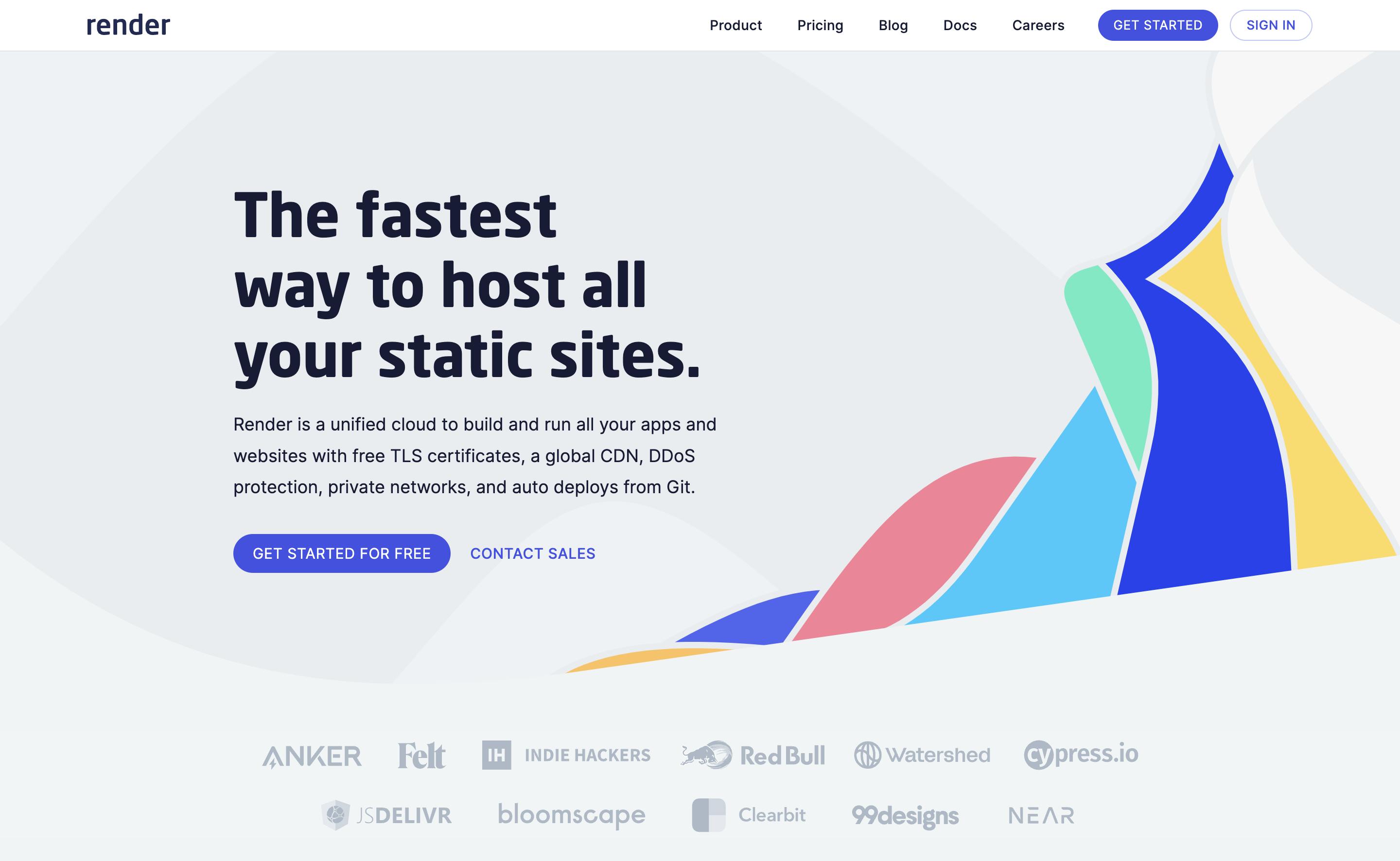
#How is it different than Heroku?
- Cost: Render is generally less expensive than Heroku, especially for low-traffic applications.
- Features: Render offers a number of features that are not available on Heroku, such as support for custom buildpacks and the ability to deploy static sites.
#Pricing
Render offers a free tier for low-traffic applications. Paid plans start at $7 per month.
#Strengths
- Cost: Render is generally less expensive than Heroku.
- Features: Render offers a number of features that are not available on Heroku.
- Support: Render offers excellent customer support.
#Weaknesses
- Documentation: Render's documentation is not as comprehensive as Heroku's documentation.
- Ecosystem: Render does not have as large of an ecosystem of add-ons as Heroku.
#3. Fly
Fly is a cloud platform that allows developers to build, deploy, and manage their applications and websites. It offers a variety of features that make it a popular alternative to Heroku.

#How is it different than Heroku?
Fly is different from Heroku in a few key ways:
- Pricing: Fly is more affordable than Heroku, especially for lower-traffic applications.
- Speed: Fly is designed to be faster than Heroku, thanks to its use of a global edge network and other optimizations.
- Features: Fly offers a number of features that are not available on Heroku, such as global routing, ephemeral environments, and support for serverless computing.
#Pricing
Fly offers a free tier for applications that receive less than 1 million requests per month. Paid plans start at $5 per month for applications that receive up to 10 million requests per month.
#Strengths
- Speed: Fly is designed to be as fast as possible, using a variety of techniques to reduce latency and improve performance.
- Scalability: Fly can automatically scale your application up or down based on demand, so you don't have to worry about managing infrastructure.
- Security: Fly offers a variety of security features to protect your application, including firewalls, intrusion detection, and DDoS protection.
#Weaknesses
- Not as well-known as Heroku
- Smaller community of users
#4. Railway
Railway is a cloud platform that allows developers to build, deploy, and manage their applications and websites. It offers a variety of features to make the development and deployment process easier, including:
- Automatic deployments: Railway can automatically deploy your application from your Git repository, so you can spend less time on DevOps and more time on development.
- Global infrastructure: Railway's infrastructure is distributed around the world, ensuring that your application is always fast and reliable, regardless of where your users are located.
- Scalability: Railway can automatically scale your application up or down based on demand, so you don't have to worry about managing infrastructure.
- Security: Railway offers a variety of security features to protect your application, including firewalls, intrusion detection, and DDoS protection.
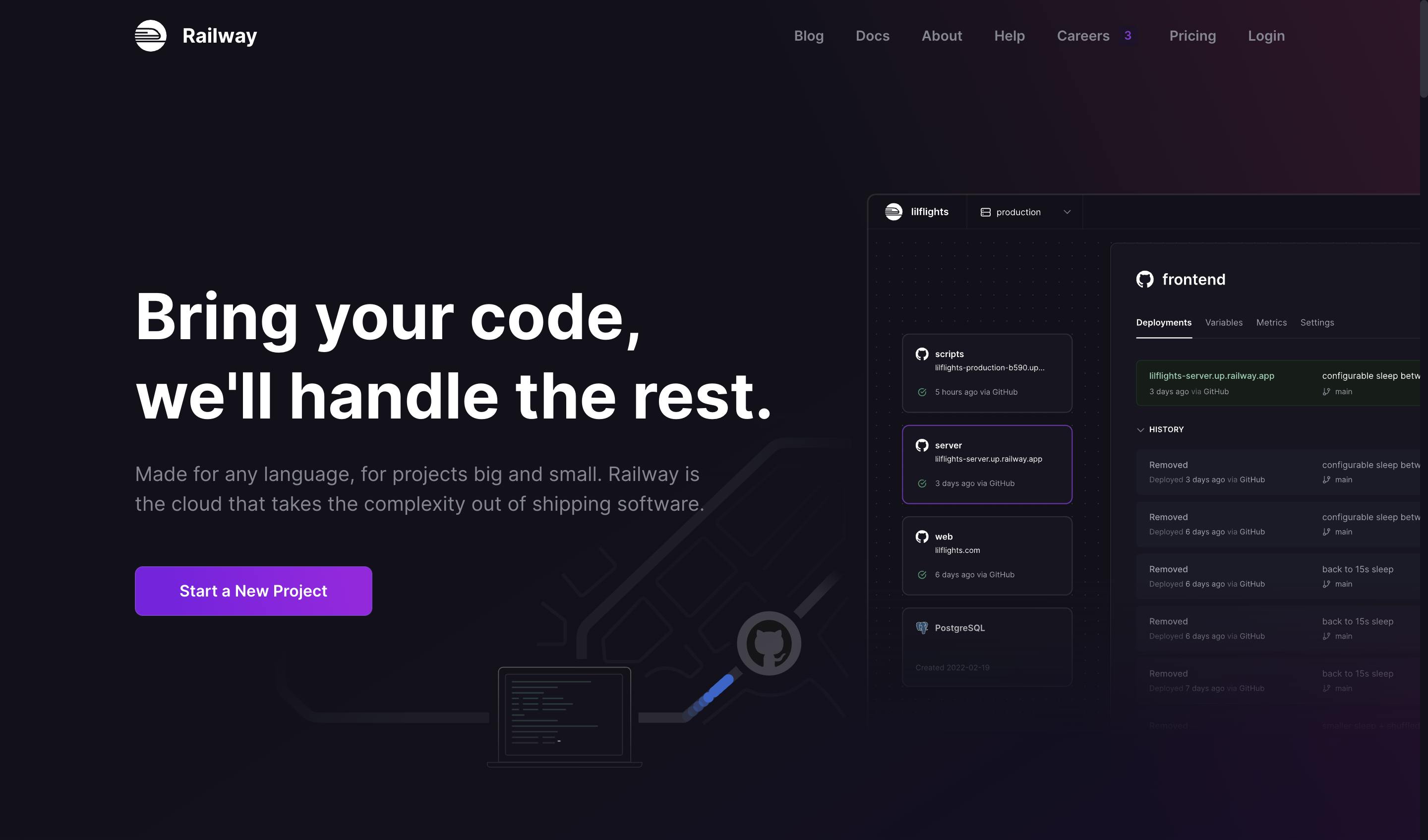
#How is it different than Heroku?
Railway is different from Heroku in a few key ways:
- Cost: Railway is more affordable than Heroku, especially for lower-traffic applications.
- Features: Railway offers a number of features that are not available on Heroku, such as support for serverless computing, custom domains, and database backups.
- Developer experience: Railway is designed to be easy to use, with a focus on developer productivity.
#Pricing
Railway offers a free tier for applications that receive less than 1 million requests per month. Paid plans start at $5 per month for applications that receive up to 10 million requests per month.
#Strengths
- Affordable pricing
- Innovative features
- Easy-to-use developer experience
#Weaknesses
- Not as well-known as Heroku
- Smaller community of users
#5. Replit
Replit is a cloud-based development environment that allows developers to write, run, and share code in real-time. It supports a wide range of programming languages and frameworks, and it offers a variety of features that make it a popular alternative to Heroku, including:
- Collaboration: Replit makes it easy to collaborate with other developers on code projects. You can share your Repls with others and invite them to edit and run your code in real-time.
- Education: Replit is a great platform for learning new programming languages and technologies. It offers a variety of tutorials and interactive exercises, and it makes it easy to experiment with new code without having to worry about setting up a local development environment.
- Prototyping: Replit is a good platform for prototyping new application ideas. You can quickly and easily get started with a new project, and you can share your prototypes with others to get feedback.
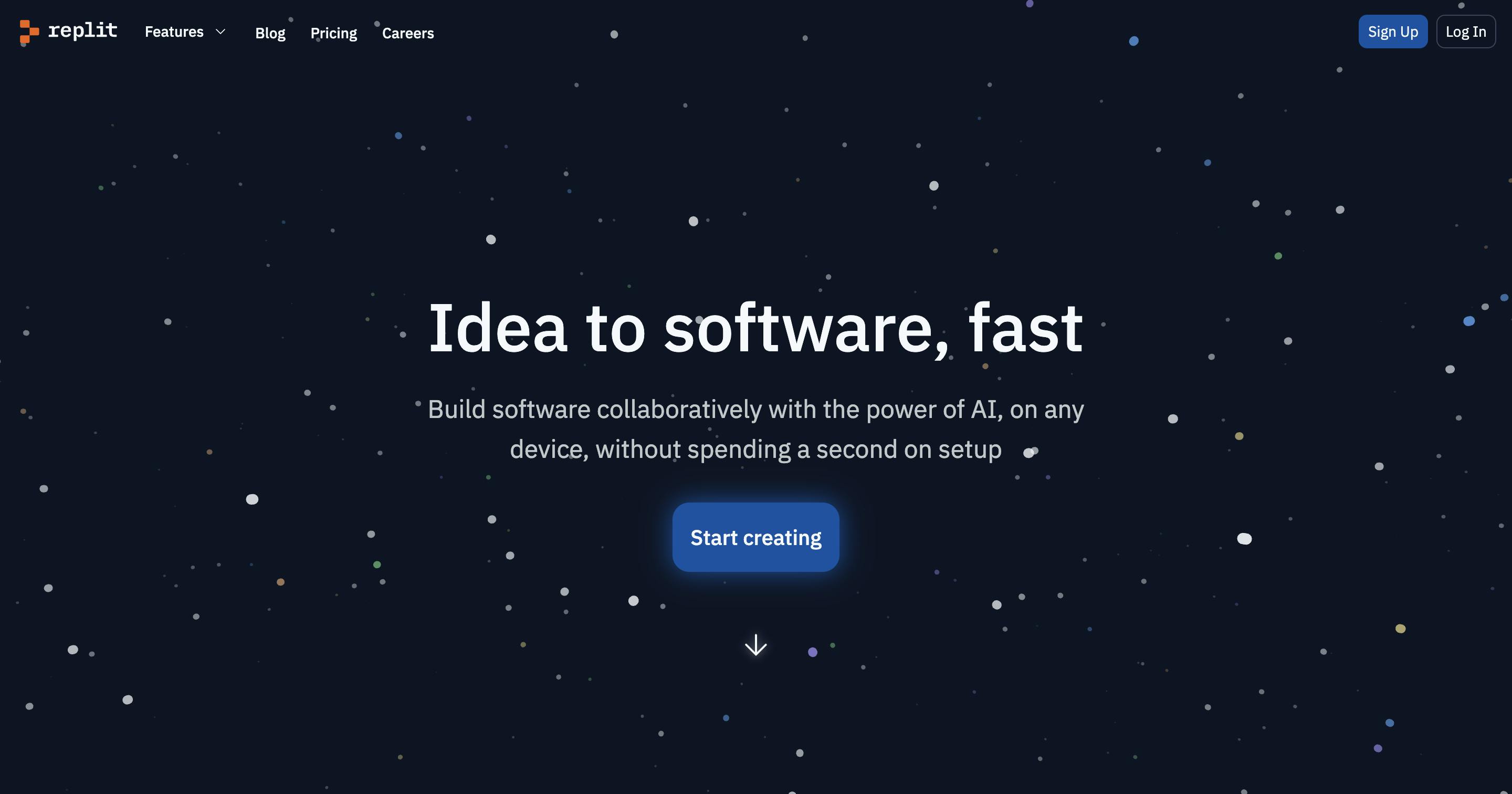
#How is it different than Heroku?
Replit is different from Heroku in a few key ways:
- Cost: Both free and paid plans are available.
- Target audience: Replit is designed for a wider range of users than Heroku, including students, hobbyists, and professional developers. Heroku is primarily focused on professional developers.
- Features: Replit, primarily an Integrated Development Environment (IDE) with cloud-run capabilities, offers a number of features not available on Heroku, a dedicated Platform-as-a-Service (PaaS), such as collaboration tools, educational resources, and support for prototyping.
#Pricing
Replit is free to use for most users. Paid plans start at $10 per month for users who need more resources or features.
#Strengths
- Collaboration features
- Educational resources
- Support for prototyping
- Free tier
#Weaknesses
- Not as well-known as Heroku
- Smaller community of users
- Limited support for some programming languages and frameworks
#6. Platform.sh
Platform.sh is a cloud platform for building, deploying, and managing web applications. It offers a variety of features that make it a popular alternative to Heroku, including:
- Continuous integration and continuous delivery (CI/CD): Platform.sh provides a built-in CI/CD pipeline that automates the process of testing and deploying code.
- Containerization: Platform.sh uses containers to package and deploy applications. This makes it easy to scale applications and ensures that they are always running in a consistent environment.
- Security: Platform.sh offers a variety of security features to protect applications, including firewalls, intrusion detection, and DDoS protection.
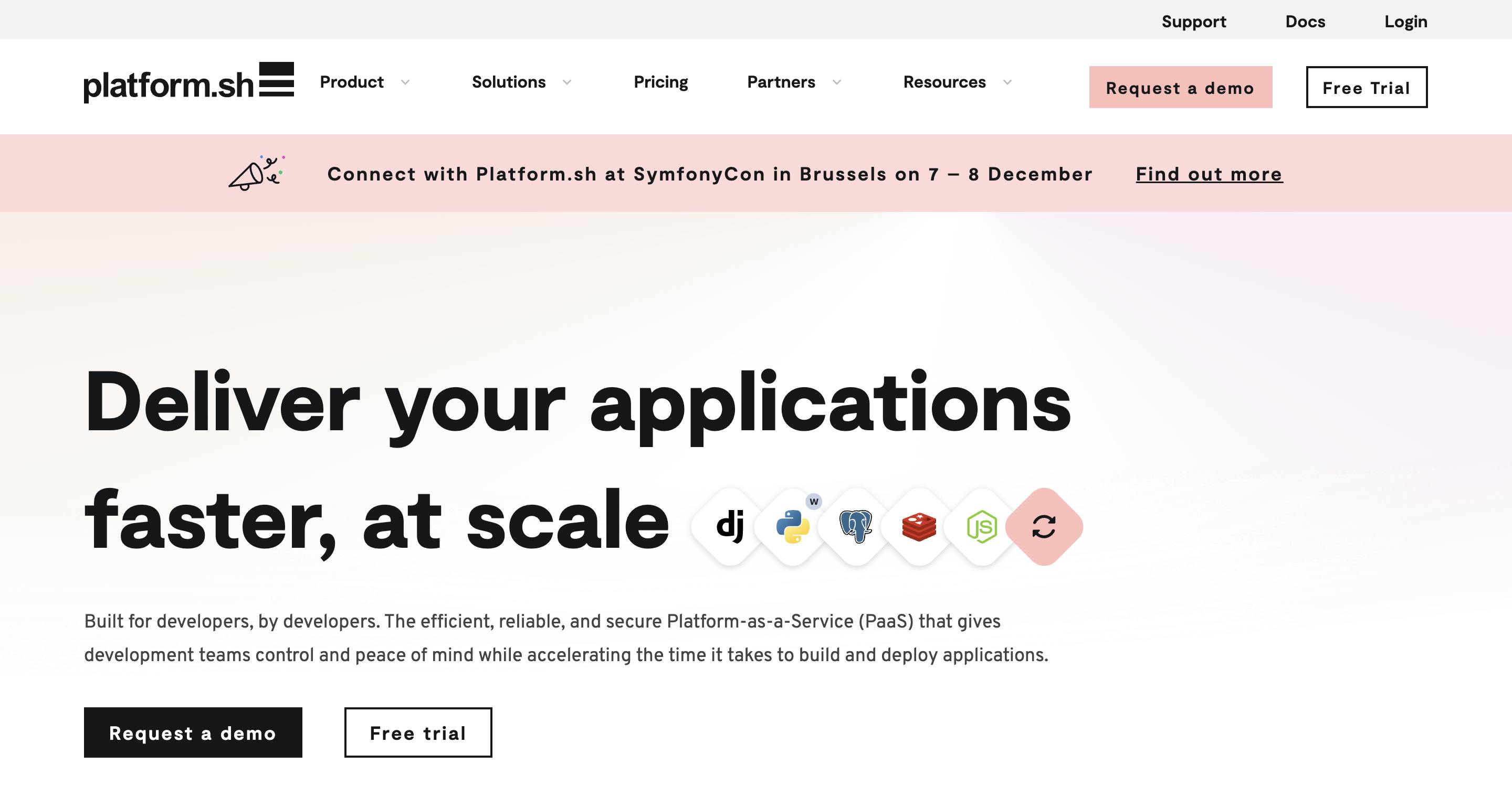
#How is it different than Heroku?
Platform.sh is different from Heroku in a few key ways:
- Target audience: Platform.sh is primarily focused on professional developers, agencies and teams. Heroku is designed for a wider range of users, including students and hobbyists.
- Features: Platform.sh offers a number of features that are not available on Heroku, such as built-in CI/CD, containerization, and advanced security features.
- Cost: Platform.sh is more expensive than Heroku, but it offers a more feature-rich platform.
#Pricing
Platform.sh offers a variety of pricing plans, starting at $7 per month for hobbyist projects. Paid plans for professional developers and teams start at $99 per month.
#Strengths
- Built-in CI/CD pipeline
- Containerization
- Advanced security features
#Weaknesses
- More expensive than Heroku
- Smaller community of users
#7. Vercel
Vercel is a cloud platform for building, deploying, and managing web applications and APIs. It is known for its focus on performance and scalability and its support for serverless computing.
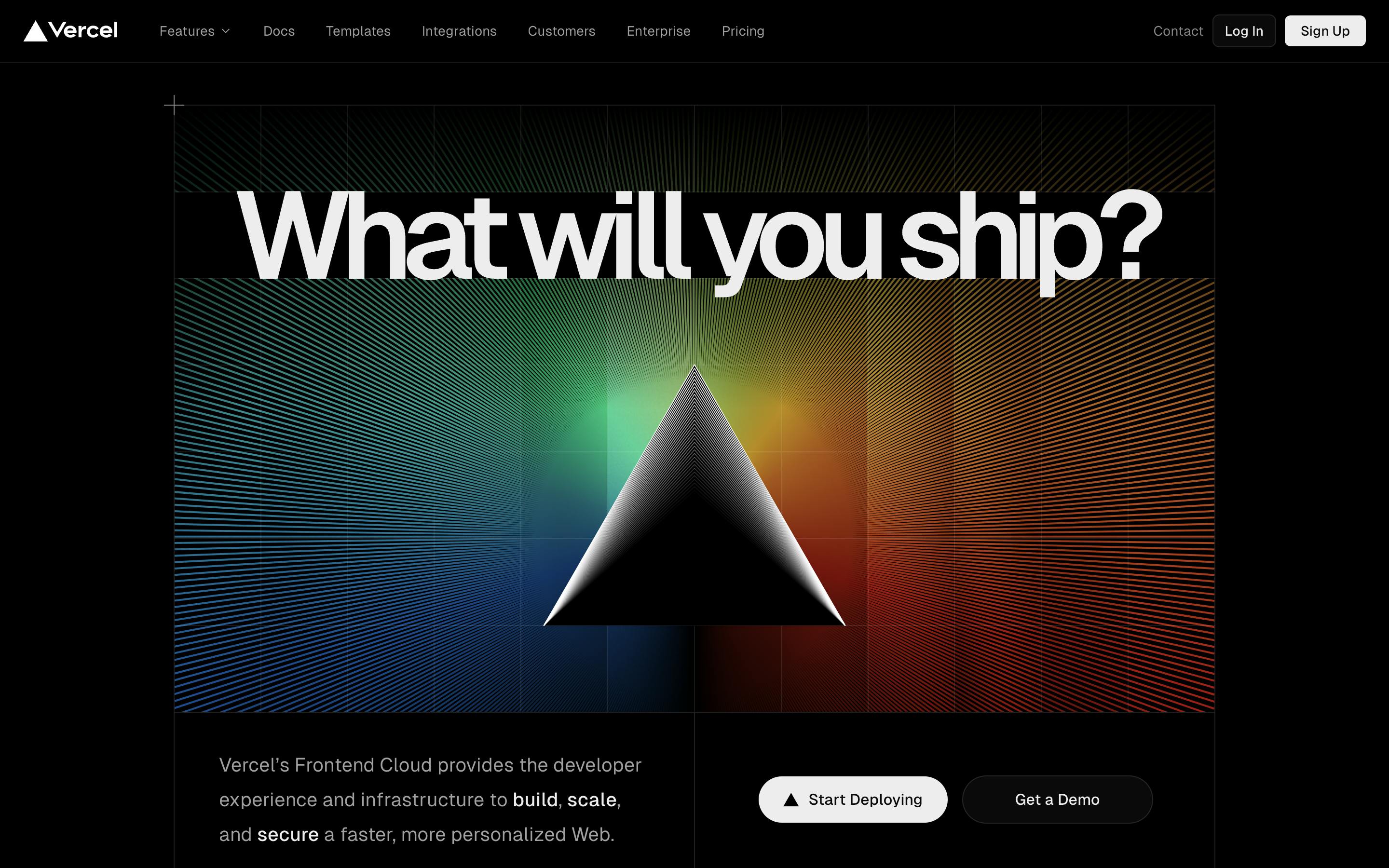
#How is it different than Heroku?
Vercel is different from Heroku in a few key ways:
- Target audience: Vercel is primarily focused on frontend developers and teams who are building and deploying modern web applications and APIs. Heroku is designed for a wider range of developers, including backend developers and teams.
- Features: Vercel offers a number of features that are not available on Heroku, such as edge functions, serverless previews, and a global edge network.
- Cost: Vercel's pricing is based on usage, with no upfront costs. Heroku's pricing is based on the resources you allocate to your applications, with upfront costs for paid plans.
#Pricing
Vercel offers a free tier for applications that receive less than 1,000,000 requests per month. Paid plans start at $10 per month for applications that receive up to 10,000,000 requests per month.
#Strengths
- Focus on performance and scalability
- Support for serverless computing
- Edge functions
- Serverless previews
- Global edge network
- Usage-based pricing
#Weaknesses
- Vercel has limited built-in support for traditional backend frameworks like Django or Ruby on Rails, which may require additional configurations or workarounds, making it a less convenient choice for developers accustomed to these frameworks
#8. Netlify
Netlify is a cloud platform for building, deploying, and managing static websites and Jamstack applications. It is known for its ease of use, its focus on performance, and its support for a wide range of technologies.
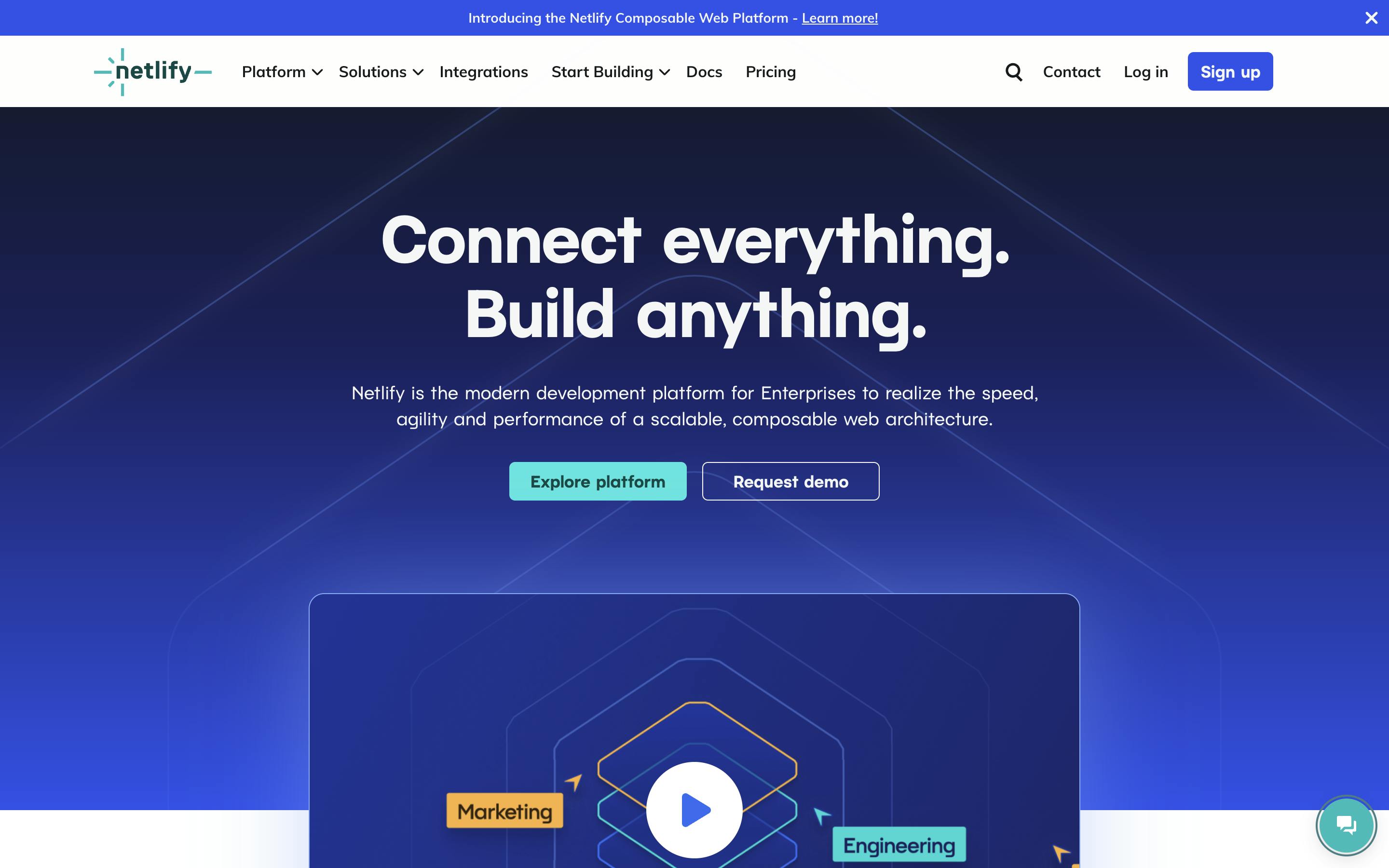
#How is it different than Heroku?
Netlify is different from Heroku in a few key ways:
- Target audience: Netlify is primarily focused on frontend developers and teams who are building and deploying static websites and Jamstack applications. Heroku is designed for a wider range of developers, including backend developers and teams.
- Features: Netlify offers a number of features that are not available on Heroku, such as continuous deployment, global edge network, and support for a wide range of static site generators and frameworks.
- Cost: Netlify's pricing is based on bandwidth and storage, with a generous free tier. Heroku's pricing is based on the resources you allocate to your applications, with upfront costs for paid plans.
#Pricing
Netlify offers a free tier for websites that receive less than 100 GB of bandwidth per month. Paid plans start at $9 per month for websites that receive up to 1 TB of bandwidth per month.
#Strengths
- Ease of use
- Focus on performance
- Support for a wide range of technologies
- Continuous deployment
- Global edge network
- Generous free tier
#Weaknesses
- Not as well-known as Heroku
- Smaller community of users
- Limited support for dynamic applications. Netlify does not offer native support for backend frameworks like Django or Ruby on Rails. Developers who want to use these frameworks on Netlify will need to configure them themselves or use third-party tools
#9. Digital Ocean App Platform
DigitalOcean App Platform is a fully managed Platform as a Service (PaaS) solution that allows developers to build, deploy, and scale web applications and APIs with ease. It offers a variety of features that make it a popular alternative to Heroku, including:
- Automatic deployments: DigitalOcean App Platform automatically deploys your code from your Git repository, so you can spend less time on DevOps and more time on development.
- Scalability: Digital Ocean App Platform can automatically scale your application up or down based on demand, so you don't have to worry about managing infrastructure.
- Security: Digital Ocean App Platform offers a variety of security features to protect your application, including firewalls, intrusion detection, and DDoS protection.
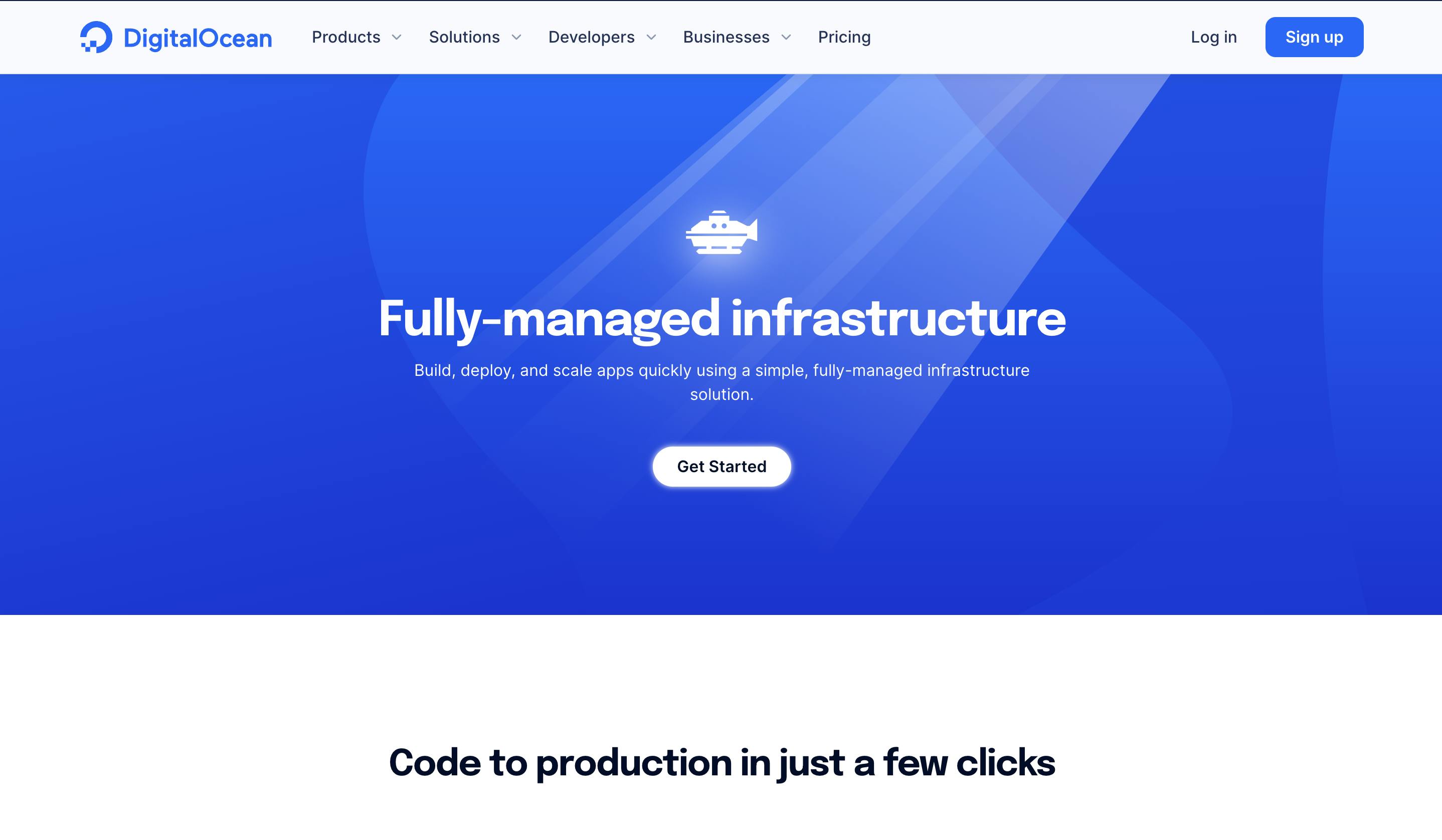
#How is it different than Heroku?
Digital Ocean App Platform is different from Heroku in a few key ways:
- Cost: DigitalOcean App Platform is more affordable than Heroku, especially for lower-traffic applications.
- Features: DigitalOcean App Platform and Heroku both offer support for custom domains and SSL certificates. However, DigitalOcean may provide a more straightforward or cost-effective process for configuring and managing these features, especially for developers or small teams who prefer a simplified setup.
- Control: Digital Ocean App Platform gives you more control over your infrastructure than Heroku. For example, you can choose the server size and region for your application.
#Pricing
DigitalOcean App Platform offers a free tier for applications that receive less than 1 million requests per month. Paid plans start at $7 per month for applications that receive up to 10 million requests per month.
#Strengths
- Affordable pricing
- Straightforward and cost-effective setup for custom domains and SSL certificates
- More control over infrastructure
#Weaknesses
- Not as well-known as Heroku
- Smaller community of users
#10. Porter
Porter is a cloud platform that allows developers to deploy and manage their applications on AWS. It is built on top of Kubernetes, so it offers the same scalability and reliability as AWS but with a more user-friendly interface.
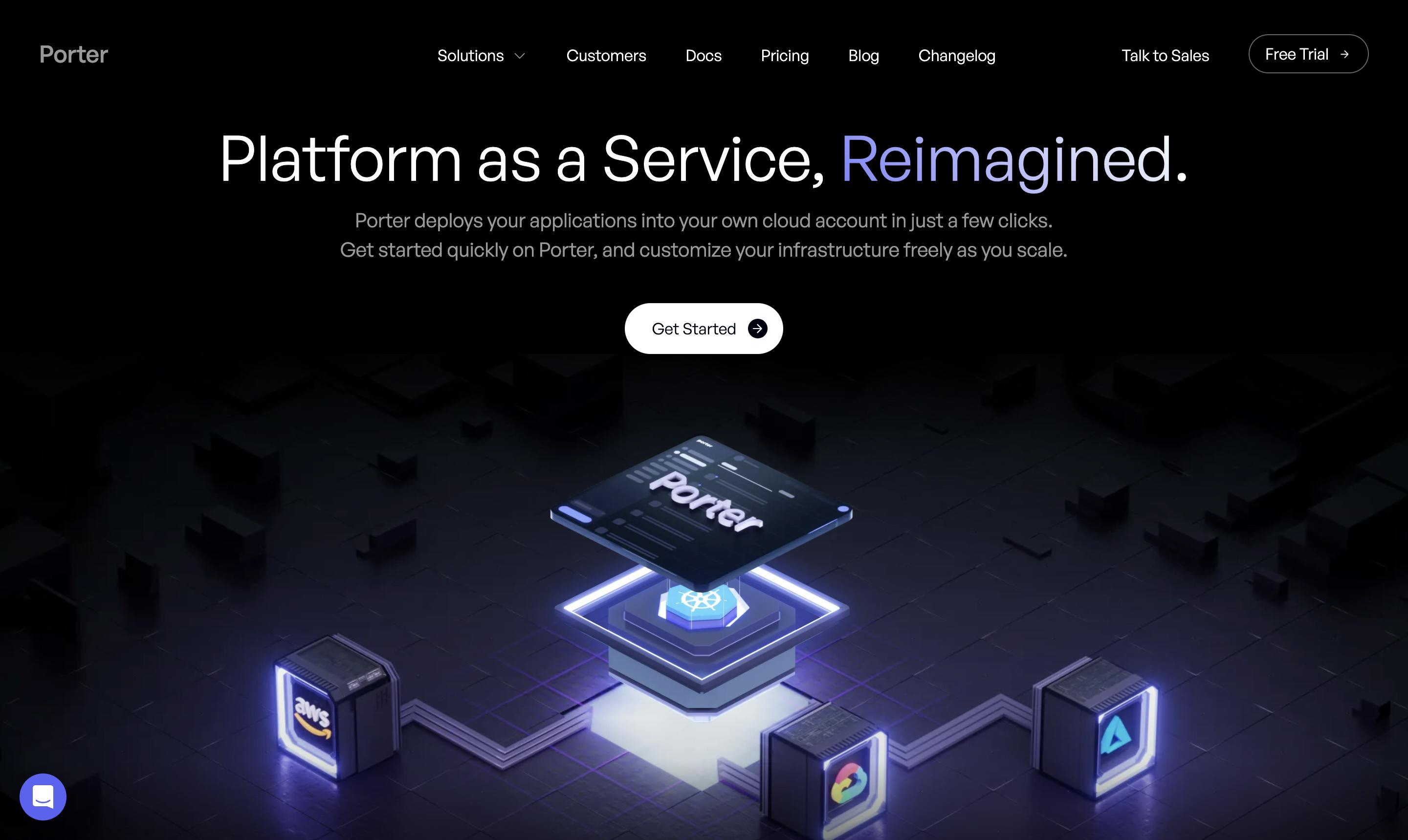
#How is it different than Heroku?
Porter is different from Heroku in a few key ways:
- Infrastructure: Both Porter and Heroku utilize AWS, but Porter provides direct access to AWS resources and is built on top of Kubernetes, allowing more flexibility in managing the infrastructure.
- Cost: Porter's pricing is based on the resources you use, while Heroku's pricing is based on the dyno type you choose. This means that Porter can be more cost-effective for applications that use a lot of resources.
- Features: Porter offers a number of features that are not available on Heroku, such as the ability to deploy multiple environments from a single codebase, support for custom Kubernetes resources, and built-in support for continuous integration and continuous delivery (CI/CD).
#Pricing
Porter offers a free tier for applications that use less than $100 per month in AWS resources. Paid plans start at $10 per month for applications that use less than $200 per month in AWS resources.
#Strengths
- Flexibility: Porter runs on AWS, so users have more flexibility in choosing the infrastructure that best meets their needs.
- Cost-effectiveness: Porter's pricing is based on the resources you use, so it can be more cost-effective for applications that use a lot of resources.
- Features: Porter offers a number of features that are not available on Heroku, such as the ability to deploy multiple environments from a single codebase, support for custom Kubernetes resources, and built-in support for CI/CD.
#Weaknesses
- Not as well-known as Heroku
- Smaller community of users
- Can be more complex to use than Heroku
#Conclusion
As we've discussed different alternates for Heroku, it's evident that while Heroku has its merits, there's a rich range of alternatives waiting to be explored. Whether you're an independent developer, a startup, or a seasoned enterprise, the right platform for your needs might just be a click away. Each of the platforms discussed offers unique features, pricing models, and benefits tailored to different project requirements. If Heroku's recent changes have left you wondering about your next step, keep your spirits up. The tech universe is vast, and the perfect fit for your project might be right under your nose. Dive in, explore, and find the ideal cloud platform for your development needs.
Your Favorite DevOps Automation Platform
Qovery is a DevOps Automation Platform Helping 200+ Organizations To Ship Faster and Eliminate DevOps Hiring Needs
Try it out now!

Your Favorite DevOps Automation Platform
Qovery is a DevOps Automation Platform Helping 200+ Organizations To Ship Faster and Eliminate DevOps Hiring Needs
Try it out now!
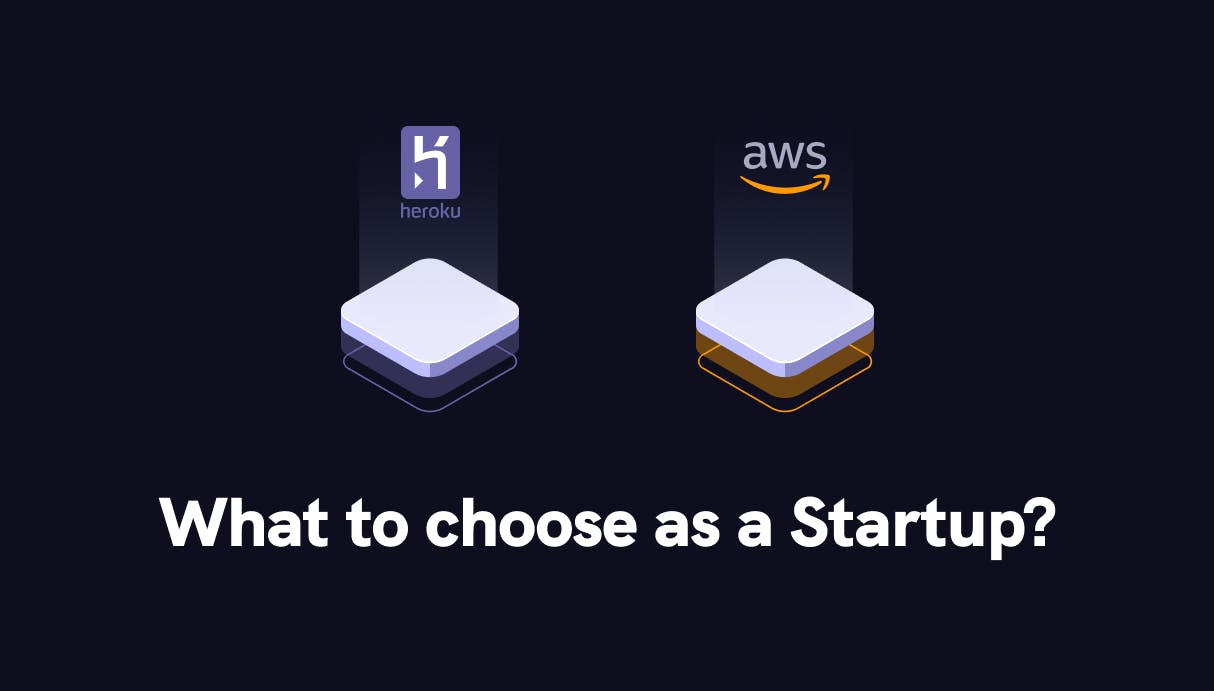
.jpg?ixlib=gatsbyFP&auto=compress%2Cformat&fit=max)
